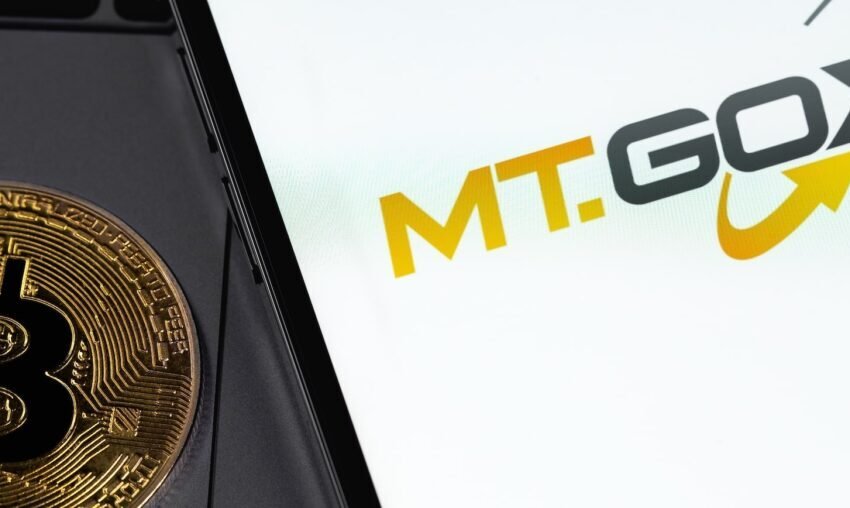New Insights into Mt. Gox Bitcoin Heist Surface After Court Records Release
(Originally posted on : Crypto News – iGaming.org )
Freshly unveiled court records are exposing how the administrators of the closed-down bitcoin exchange, Alexander Verner and Alexey Bilyuchenko, embezzled and concealed bitcoin from Mt. Gox, the notoriously breached bitcoin exchange.
This recently publicized information offers unprecedented insights into the colossal volume of bitcoin swindled from Mt. Gox, starting from a catastrophic hack in 2011. These revelations open a unique window into the investigative efforts of U.S. law enforcement into two pioneering bitcoin corporations – Mt. Gox and BTC-e.
New players only. Welcome Bonus – 125% bonus on your first deposit up to $2,500
The Beginning of The Heist
Post its inception in 2010, Mt. Gox fell victim to a hack orchestrated by Verner, Bilyuchenko, and unnamed associates. This cyber assault saw the perpetrators gain access to sensitive user data, transactions records, and crucially, the private keys for the exchange’s cryptocurrency in 2011. The fallout was so extensive that by 2014, Mt. Gox declared bankruptcy, having lost the majority of its crypto assets.
Illicit Transfer of Funds
The court records released this week detail how from 2011 to 2014, the illicit group channeled an astonishing 647,000 bitcoins out of Mt. Gox’s wallets. A significant portion of these, totaling 300,000 bitcoins, found their way to BTC-e, another crypto exchange that has since been dissolved.
BTC-e’s alleged operator, Alexander Vinnik, also a Russian national, was taken into custody in Greece and later extradited to the U.S. to respond to charges related to computer infringements, hacking incidents, ransomware scams, identity theft schemes, corrupt public officials, and narcotics distribution rings.
New players only. Exclusive 111% Welcome Bonus + 111 Free Spins in Aztec Magic Deluxe
The Downfall
The downfall of BTC-e came in 2017, with the FBI shutting it down. Bilyuchenko, the exchange’s administrator, was reportedly arrested in Russia in 2019. His testimony, as referenced in the book by Russian investigative journalist Andrey Zakharov, stated that Verner was in charge of BTC-e’s technical development. However, the present locations of both Bilyuchenko and Verner remain unknown.
The stolen bitcoin was transferred from Mt. Gox to BTC-e, TradeHill (another bitcoin exchange that ceased operations in 2013), and the personal accounts of Verner and Bilyuchenko at Mt. Gox. To liquidate the stolen bitcoin, they utilized U.S. companies, although specific entities have not been named in the indictment.
Exchanges and Shell Companies
Further light is shed by a Department of Homeland Security (DHS) report, highlighting transactions between BTC-e and two early, now-defunct bitcoin companies, BitInstant and Memory Dealers. The co-conspirators received $2.5 million from these entities into the bank account of a shell company tied to BTC-e, the Canton Business Corporation, registered in Seychelles.
Despite the substantial development, the locations of Bilyuchenko and Verner remain a mystery. Meanwhile, BTC-e’s Vinnik hopes for a prisoner swap that may allow him to return to Russia after nearly five years in detention. With the unsealing of court documents, it seems that the intricate story of BTC-e and Mt. Gox is far from over.







 Bitcoin
Bitcoin  Ethereum
Ethereum  Tether
Tether  XRP
XRP  USDC
USDC  Solana
Solana  TRON
TRON  Dogecoin
Dogecoin  Lido Staked Ether
Lido Staked Ether  Figure Heloc
Figure Heloc  Bitcoin Cash
Bitcoin Cash  WhiteBIT Coin
WhiteBIT Coin  Cardano
Cardano  USDS
USDS  LEO Token
LEO Token  Wrapped stETH
Wrapped stETH  Hyperliquid
Hyperliquid  Chainlink
Chainlink  Wrapped Bitcoin
Wrapped Bitcoin  Ethena USDe
Ethena USDe  Binance Bridged USDT (BNB Smart Chain)
Binance Bridged USDT (BNB Smart Chain)  Canton
Canton  Monero
Monero  Stellar
Stellar  USD1
USD1  Wrapped eETH
Wrapped eETH  Rain
Rain  Zcash
Zcash  sUSDS
sUSDS  Hedera
Hedera  Litecoin
Litecoin  Dai
Dai  Coinbase Wrapped BTC
Coinbase Wrapped BTC  PayPal USD
PayPal USD  Avalanche
Avalanche  Shiba Inu
Shiba Inu  WETH
WETH  Sui
Sui  World Liberty Financial
World Liberty Financial  Toncoin
Toncoin  USDT0
USDT0  Cronos
Cronos  Tether Gold
Tether Gold  MemeCore
MemeCore  PAX Gold
PAX Gold  Uniswap
Uniswap  Polkadot
Polkadot  Mantle
Mantle  Ethena Staked USDe
Ethena Staked USDe  BlackRock USD Institutional Digital Liquidity Fund
BlackRock USD Institutional Digital Liquidity Fund  Aave
Aave  Aster
Aster  Falcon USD
Falcon USD  Pepe
Pepe  Bittensor
Bittensor  OKB
OKB  Bitget Token
Bitget Token  Global Dollar
Global Dollar  Circle USYC
Circle USYC  Pi Network
Pi Network  syrupUSDC
syrupUSDC  HTX DAO
HTX DAO  Ripple USD
Ripple USD  Sky
Sky  Ethereum Classic
Ethereum Classic  NEAR Protocol
NEAR Protocol  BFUSD
BFUSD  Ondo
Ondo  Pump.fun
Pump.fun  Superstate Short Duration U.S. Government Securities Fund (USTB)
Superstate Short Duration U.S. Government Securities Fund (USTB)  Internet Computer
Internet Computer  POL (ex-MATIC)
POL (ex-MATIC)  Cosmos Hub
Cosmos Hub  Gate
Gate  KuCoin
KuCoin  Worldcoin
Worldcoin  Jupiter Perpetuals Liquidity Provider Token
Jupiter Perpetuals Liquidity Provider Token  Midnight
Midnight  NEXO
NEXO  Jito Staked SOL
Jito Staked SOL  Ethena
Ethena  USDtb
USDtb  Binance-Peg WETH
Binance-Peg WETH  Official Trump
Official Trump  Rocket Pool ETH
Rocket Pool ETH  Algorand
Algorand  Spiko EU T-Bills Money Market Fund
Spiko EU T-Bills Money Market Fund  Binance Bridged USDC (BNB Smart Chain)
Binance Bridged USDC (BNB Smart Chain)  USDD
USDD  Render
Render  Wrapped BNB
Wrapped BNB  Filecoin
Filecoin  Function FBTC
Function FBTC